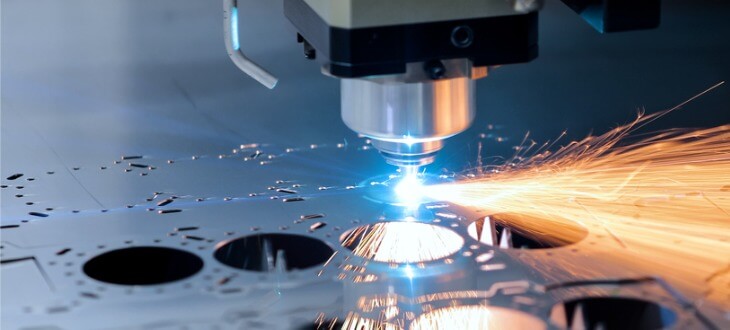What does CNC stand for?
CNC stands for Computer Numeric Control. It’s the process of pre-programing software that tells the machine how and when to move to create something you need.
Using CNC machines to handle your workload has many benefits. This article will outline the importance of CNC machines, their uses, and the different types of machines.
The Importance of CNC Machining
There are many important benefits of CNC machining. They include being extremely accurate because you are using exact measurements for computers to use. You also eliminate the potential for human error in what you’re making and ensure that you get it right the first time.
CNC Machines also increase the efficiency of your work because you can run multiple machines at the same time. You do not need to monitor it as closely as you would have to if you were to do this by hand.
Your product quality will increase. This is because a machine cuts your products for you and ensures they’re perfect every time. Furthermore, the machines can do repeat work on the same designs perfectly, over and over again.
Lastly, there is the added benefit of helping to keep your staff safe because machines do all the intricate cutting and remove that risk factor compared to your staff doing the work by hand.
What is a CNC machine used for?
CNC machines are used to create items. The materials can range from wood, aluminum, and much more to create the custom products you need. Essentially, the goal is to use these machines to create a custom design that is computer programmed.
CNC machines are used in various industries, such as medicine, transportation, electronics, the military, and many others.
Since it is a machine, it can also track a lot of things you need to run your business. You may edit the jobs you’ve had to ensure that each is perfect and up to the best industry standards. CNC machines also show display drawings so you can anticipate what your product will look like.
The last feature that will help your business run smoothly is the tracking capabilities that come with CNC machines. You can use these to log how many units the machine has created, set up a routine for it to run on, and even maintain and retrieve the data when needed. This will be particularly helpful to management teams that need to record the data to maximize efficiencies in production cycles.
Different Types of CNC Machines
There are many different types of CNC machines. Although there are numerous ones, we will be focusing on the six most common types, most often found in a machine shop.
1. CNC Turning Machines
This type of machine is categorized by its ability to turn items to cut. Additionally, you can add a component such as holes, slots, threads, and so on.
2. CNC Milling Machines
CNC milling machines can rotate cutting tools while your materials stay put. They tend only to produce square or rectangular-like products.
3. CNC Laser Machines
Laser machines use lasers to cut or engrave materials.
4. CNC 3D Printer
3D printers are great for getting the custom design you desire. Basically, you tell the printer when and where to cut to get that precise look and feel you need for your project.
5. CNC Lathes
This type of CNC machine turns your materials and your cutting tool automatically for you. You may also add extra pieces to get that angle and product you need. This type of machine is used to make symmetrical items such as spheres or cones.
6. CNC Routers
These types of CNC machines are used to cut large pieces of wood, metal, plastics, and other materials. By default, these machines tend to run on three dimensions. However, you may buy additional axises to run up to six dimensions.
For All Your Metal Needs, Contact Tampa Steel & Supply Today!
When it comes to metal services, blasting is just one way to get your metals looking like new. At Tampa Steel and Supply, we offer a variety of products and services for all of your metal needs. Have questions? Give us a call today to learn more!
Request a Quote Online
Or Call Tampa Steel & Supply at (813) 241-2801

